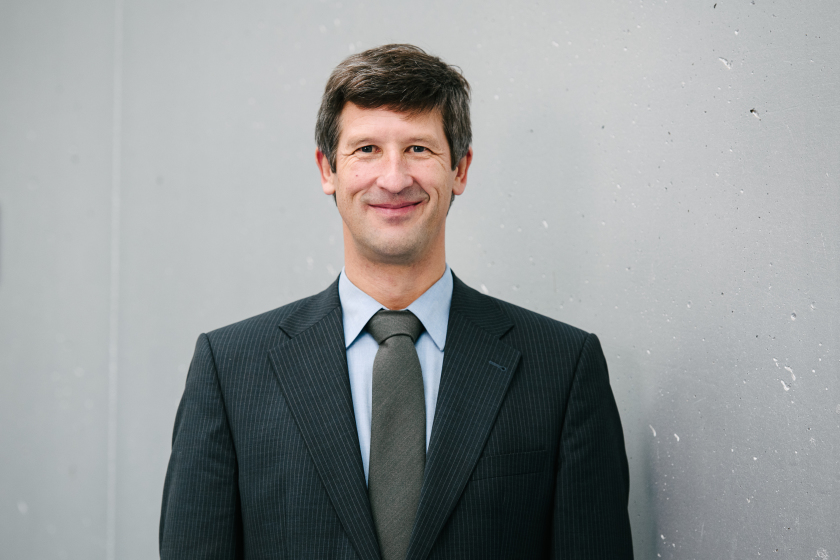Humboldt-University Berlin appoints Jan Lüning

Jan Lüning, Scientific Director at HZB for "Matter", holds a professorship at Humboldt University in Berlin.
© P. Dera /HZB
Prof. Dr. Jan Lüning, Scientific Director at Helmholtz-Zentrum Berlin (HZB), was appointed to an S-W3 professorship at Humboldt University in Berlin in July. The professorship is entitled "Electronic Properties of Materials/X-ray Analysis" and is part of the Faculty of Mathematics and Natural Sciences at Humboldt University Berlin.
"I am very pleased about my appointment to the Humboldt University, which will allow us to further strengthen our cooperation with the Alliance of Berlin Universities, also in order to attract students to research at the HZB," says Lüning.
Jan Lüning moved to HZB in autumn 2018 to take over the tasks of a scientific managing director. He heads the "Matter" division, while the "Energy and Information" division is headed by Prof. Dr. Bernd Rech as second Scientific Director.
Jan Lüning is an internationally renowned expert for research with synchrotron radiation. Before joining HZB, he worked at the French synchrotron SOLEIL and taught as a professor at the Pierre and Marie Curie University in Paris. He has been instrumental in the development of new experimental methods at synchrotron sources, both in Paris and at the synchrotron in Stanford, USA.
red.
https://www.helmholtz-berlin.de/pubbin/news_seite?nid=21745;sprache=en
- Copy link
-
Georg Forster Research Fellow explores photocatalysts
Dr. Moses Alfred Oladele is working on photocatalysis for CO2 conversion in a joint project with the group of Dr. Matt Mayer, HZB, and Prof. Andreas Taubert at the University of Potsdam. The chemist from Redeemer's University in Ede, Nigeria, came to Berlin in the summer of 2024 with a Georg Forster Research Fellowship from the Alexander von Humboldt Foundation and will work at HZB for two years.
-
Perovskite solar cells: New Young Investigator Group funded by BMBF at HZB
In the COMET-PV project, Dr Artem Musiienko aims to significantly accelerate the development of perovskite solar cells. He is using robotics and AI to analyse the many variations in the material composition of tin-based perovskites. The physicist will set up a Young Investigator Group at HZB. He will also have an affiliation with Humboldt University in Berlin, where he will gain teaching experience in preparation for a future professorship.
-
Dr. Michelle Browne receives Daimler and Benz Foundation Fellowship
Michelle Browne heads a Helmholtz Young Investigators Group on electrocatalysis at HZB. She has now been selected as a fellow of the Daimler and Benz Foundation. She will receive 40,000 euros over the next two years and, in addition, access to an excellent research network.
